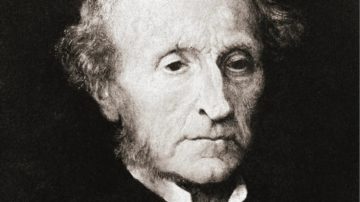Richard V Reeves in Persuasion:
 One hundred and fifty years ago this month, John Stuart Mill died in his home in Avignon. His last words were to his step-daughter, Helen Taylor: “You know that I have done my work.”
One hundred and fifty years ago this month, John Stuart Mill died in his home in Avignon. His last words were to his step-daughter, Helen Taylor: “You know that I have done my work.”
He certainly had. During his 66 years of life, Mill became the preeminent public intellectual of the century, producing definitive works of logic and political economy, founding and editing journals, serving in Parliament, and churning out book reviews, journalism and essays, most famously his 1859 masterpiece, On Liberty. Oh, and he had a day job, too: as one of the most senior bureaucrats in the East India Company.
What is too often forgotten about Mill is that he was as much an activist as an academic. Benjamin Franklin exhorted his followers to “either write something worth reading or do something worth writing.” Mill, like Franklin himself, is among the very few who managed to do both.
For Mill, liberalism did not only have to be argued for, it had to be fought for, too. He campaigned for women’s rights and was the first MP to introduce a bill for women’s suffrage into Parliament. He was a fiercely committed anti-racist, strongly supporting the abolitionist movement in the United States, and the North in the Civil War. Mill also led a successful campaign for the right to protest and speak in London’s public parks. In Hyde Park, the famous Speaker’s Corner stands today as a tribute to his victory.
More here.
